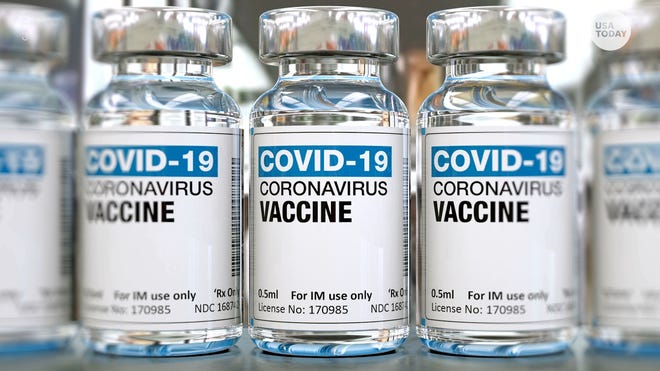Manas Dasgupta
NEW DELHI, Apr 15: As India for the first time crossed two lakhs mark in the daily new Covid-19 cases in the country on Thursday, fastest in the world to double from one lakh in just 11 days, the centre decided to further simplify the procedure and modalities to expedite the import of the approved foreign-made vaccines for emergency use in the country.
The union health ministry on Thursday said India’s drug controller would process import licenses and registration certificate applications of foreign-made Covid-19 vaccines in three working days after granting the emergency-use approval. The government on Tuesday had announced that the Covid-19 vaccines cleared for use in the US, the UK, the European Union, and Japan will get fast-track approval in India. The move is expected to potentially boost India’s pandemic response when it has recorded the world’s biggest surge in infections.
“Applications for restricted use in emergency situation for such vaccines maybe accompanied by bridging trial protocol, application for import registration certificate and application for import license. Central Drugs Standards Control Organisation (CDSCO) will process applications for registration certificate (registration of overseas manufacturing site and product) and import license, within 3 working days from the date of approval of restricted use in emergency situation,” the union health ministry said.
An application can be made by a foreign manufacturer through its Indian subsidiary and in the event if a foreign manufacturer did not have an Indian subsidiary, such applications can be filed only through an authorized agent in India, it said.
“The drugs controller general of India (DCGI) will issue permission for restricted use in emergency situation with, inter-alia, the following conditions: vaccine shall be used as per the guidelines prescribed under National Covid-19 Vaccination Programme. First 100 beneficiaries of such vaccines shall be assessed for 7 days for safety outcomes before it is rolled out for further Vaccination program. Applicant shall initiate conduct of post approval bridging clinical trials within 30 days of such approval,” the Centre’s guidelines said.
Foreign-made Covid-19 vaccines were also Tuesday granted exemption from conducting local bridging studies prior to seeking emergency use authorisation provided they have approval from any of the major regulators globally or the World Health Organisation (WHO).
Companies have been given the flexibility to perform the bridging studies parallel to administering of the shots to the general population.
The Centre has said each vaccine batch will be released by the Central Drugs Laboratory (CDL), Kasauli, before it can be used as per the guidelines prescribed under the National Covid-19 Vaccination Programme.
After receiving approval from the CDL, an applicant will use the Covid-19 vaccine only on 100 beneficiaries initially and submit the safety data to the CDSCO. The company concerned will be allowed to use the vaccine only after the safety data of 100 beneficiaries submitted by it is reviewed by the subject experts in CDSCO and found to be satisfactory.
The regulator will approve the protocol for the bridging trial in consultation with its subject expert panel within seven days of the receipt of the proposal.
The government hopes that this decision will facilitate quicker access to foreign vaccines by India and encourage imports including that of bulk drug material, optimal utilization of domestic fill and finish capacity etc, which will, in turn, provide a flip to vaccine manufacturing capacity and total vaccine availability within the country.
The government, however, insisted that it was not making any quality compromise of the foreign-made vaccines to be used in India. Dr V K Paul, member (health), Niti Aayog, said the quality of data would have to be a “robust one” to get quick approval from the drug regulator in India. “It has to be robust. India is known to approve quality drugs and vaccines globally, and export in large volumes, and there is no question of diluting that. The regulatory mechanism has been modified to save time in special situations like this pandemic,” he said.
Companies will conduct the bridging trial within the timelines specified under the approved protocol and submit the data. After the receipt of the bridging trial results, the drug controller will review the permission granted for restricted use in an emergency situation.
“Only the condition of a prior bridging trial has been done away with, and that has been allowed to run in parallel,” said Paul.
Paul on Tuesday said they hope to invite vaccine makers such as Pfizer, Moderna, and J&J.
The accelerated approval will apply to doses authorised by the US Food and Drug Administration, UK’s Medicines and Healthcare Products Regulatory Agency, European Medicines Agency, Pharmaceuticals, and Medical Devices Agency Japan, or by the World Health Organization.
There are vaccines by three companies that are approved by regulators identified by the government and are yet to be authorised in India: Pfizer-BioNTech, Moderna and J&J. A fourth vaccine, made by Novavax, has made progress in clinical trials and sought approval from several of these regulators.
Among these, two companies already have tied up with Indian companies for production — Novavax and J&J. Novavax has licensed Serum Institute of India to produce a billion doses and the Pune-based company is also carrying out bridging trials in the country. Similarly, Hyderabad’s Biological E has a deal to produce 600 million doses of the J&J vaccine and was recently poised to begin bridging studies.
The Pfizer-BioNTech and Moderna vaccines were among the first to be approved anywhere in the world last year. Both have an efficacy rate of over 95% and use mRNA technology.

